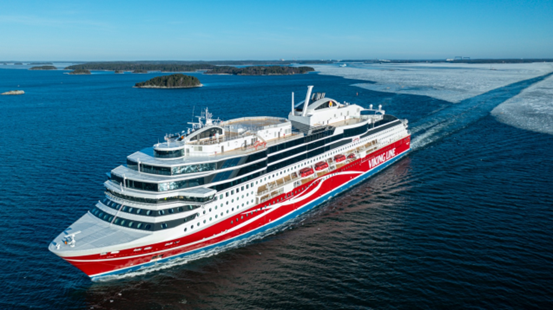Hotel guests are more conscious of water and energy consumed during their stays than ever before. Smart bathroom installations can save resources without compromising on elegance or customer experience.

The future of hotel design is sustainable
According to an assessment conducted by GRESB, hotels are among the most energy-intense buildings compared to other building facilities, such as offices or residential homes.
To meet the Paris Agreement, the hotel industry is expected to reduce greenhouse gas emissions per room by 90 percent from 2010 levels by 2050 across all hotel operations.
Sustainably designed and operated buildings help achieve lower carbon emissions and improve a business’s overall bottom line. However, for the hotel industry, the incentive to embrace sustainability isn’t just about lowering energy costs.
From attracting new customer segments to providing an outstanding guest experience, designing for sustainability is key for running a successful hotel.
How to meet high-quality standards and consumer demands
For a long time, sustainable bathroom design in hotels has been considered just another way to reduce costs of housekeeping and water consumption.
But with more conscious guests and sustainability certifications on the rise, lowering a hotel’s resource footprint has become crucial for smart project planning. Here’s how to find the right fixture for each room.
Find the perfect sustainable faucet for each room
An enormous share of water consumption in hotels is taken up by bathrooms. But not all hotel bathrooms are the same. For example, a faucet’s style, functionality and frequency of use can differ according to whether it’s installed in private guestrooms or in public lobby bathrooms.
Let's have a look at what that means.
In high-use settings, such as larger lobby bathrooms, smart touchless installations can help manage water consumption more responsibly.
Offering a smart touchless design to reduce water consumption by up to 50 percent in public bathrooms.
Going for Bluetooth-operated faucets also comes with a major additional benefit for building operators as maximum water flow time and after-flow time can be adjusted for single or multiple faucets throughout the entire building complex with the integrated HANSA Connect App.
This allows building operators to follow up on the faucets’ use and water consumption and customise flow and after-flow times to their optimal rate.
In private hotel bathrooms, guests usually expect a high level of elegance and comfort. From showerheads offering multiple functions and spray settings to elegantly crafted faucets, extravagant design and advanced functionalities can create memorable guest experiences.
But how to guarantee elegant design and perfect water flow without compromising on sustainability?

The right shower solutions can help restrict water flow and reduce water consumption without compromising on customer experience.
Water-saving showers to maximise comfort with minimal resources
Modern installations not only provide a unique and luxurious wellness experience but also conserve resources through water-saving showers and economical smart faucets.
The right shower solutions, such as low-flow showerheads, for example, can help restrict water flow and reduce water consumption.
Shower thermostats with EcoFlow control and safety-stop are a great choice for reducing the amount of water released per wash (e.g., to only 12l/minute) while a temperature safety stop at 38°C helps save energy and ensures a pleasant temperature.
Innovations that change how guests experience water
To shape awareness on consumption and provide extra transparency, modern fixtures can further encourage more responsible consumption patterns.
For example, smart showerheads that feature the latest technologies enable guests to track their consumption in real-time. Through a simple LED light, which indicates shower duration, users can get an overview and monitor their water consumption while they shower.

Smart showerheads that feature the latest technologies enable guests to track their consumption in real-time.
Achieve the luxury feel sustainably
As today’s hotel guests expect sustainable design without compromising on luxury, smart project planning is all about combining elegant design with intelligent, eco-friendly features.
One way of achieving a distinctive look sustainably is by looking at the faucets’ water flow rate when exploring different design lines.

With touchless faucets, water consumption can be reduced by half without compromising on design.
Plan for sustainable maintenance and management
Hotel managers often have to manage longer intervals of high and low usage. And for the management of resources, that also means planning in advance and making the most of that downtime.
Bathroom fixtures with incorporated smart technologies can help regulate energy and water consumption while ensuring hygiene and water safety. As flushing intervals can be flexibly scheduled in an integrated App, hotel operators can flush pipes and fixtures when it’s most convenient for them.
Plan for sustainability that pays off in the long run
To prevent unnecessary wastage, choose faucets that are manufactured to last and contain re-usable components that can be used to create new products when the faucet reaches the end of its lifecycle.
High-quality finishes and long-living products significantly lower exchange rates while fixtures that offer long spare parts availability can prolong the faucets’ lifetime significantly and keep material consumption to a minimum.
Energy-efficient and sustainable design is moving to the top of the agenda of construction projects and sustainability certifications. LEED (Leadership in Energy and Environmental Design) and BREEAM (Building Research Establishment Environmental Assessment Method), for example, have become widely used schemes of major hotel chains and recognised among conscious consumers.
Bathroom fixtures designed to fulfill these criteria play a major part in enabling that transformation.
For your next project, make sure to select the right faucet to meet local regulations, reduce resource consumption and meet guests’ growing expectations for eco-friendly traveling.








